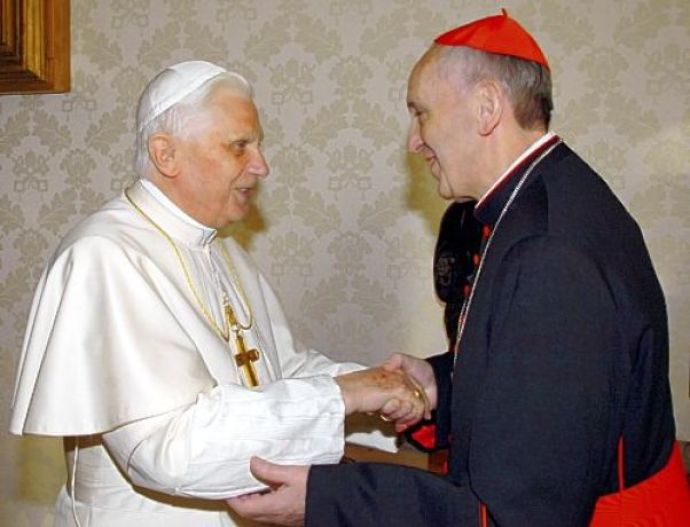When Pope Francis stepped out onto the central loggia of St. Peter’s
on the night of March 13, I thought of the man I had met in his Buenos
Aires office 10 months before:
Cardinal Jorge Mario Bergoglio, SJ, who was looking forward to laying down the burden of leadership and devoting himself to prayer, reflection and study. Now, because Benedict XVI decided to renounce the Chair of Peter and do what Cardinal Bergoglio wanted to do, the old-school Argentine Jesuit is now Benedict’s successor.
His acceptance of the cross that is the papacy was an act of
humble obedience by a man who had bent his will to the divine will for
over a half-century. What kind of man is he? Some impressions from an hour’s conversation last May:
A man of God. The new pope struck me then as someone
who lived from the inside out: a man whose rich interior life was the
basis of his public life; a leader whose decisions grew from prayer and
discernment, not calculation.
A man of profound humility. I had long been
interested in getting to know then-Cardinal Bergoglio, but I had the
hardest time getting him to talk about his own life and experiences. I
didn’t detect shyness in this, or false modesty, but a true evangelical
humility. Pope Francis will not have the effervescence of a John Paul
II; but like the Polish pope who created him cardinal, Jorge Bergoglio
has spent his life saying, not “Look at me,” but rather, “Look to Jesus
Christ.”
A man of keen and realistic intelligence. Pope
Francis is not the university professor that John Paul II and Benedict
XVI had been in their pre-papal lives. And while that model of
preparing-for-the-papacy served the Church well for 35 years, it’s not
the only possible model.
Now, rather than a professor who learned how to be a pastor, the Church has been given a pastor who has long experience of being a pastor. Nonetheless, I was struck last May by Bergoglio’s sharp mind, his familiarity with issues throughout the world Church, and his prudence in judging people and situations. He was, for example, completely realistic and lucid about the Church’s situation in Latin America.
Rather than complaining about evangelical Protestant
“sheep-rustling,” as more than a few Latin American churchmen do, the
archbishop spoke with insight and conviction about the imperative of
Catholicism rediscovering the power of the Gospel through personal
conversion to Jesus Christ.
Link (here) to the full article by George Weigel

No comments:
Post a Comment
Due to a high volume of spamming I have had to enable comment moderation. It may take a day to see your comment published. Respectful and thoughtful comments welcome